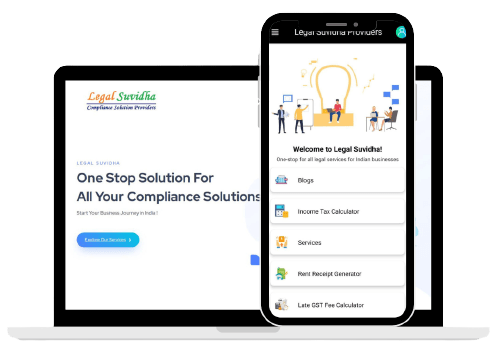5 Essential Legal SaaS Startup Rules: Avoid Penalties Globally
5 Essential Legal SaaS Startup Rules: Avoid Penalties Globally "83% of SaaS Startups Face Legal Action Within First 24 Months"...
Battery waste management refers to the process of safely and responsibly managing batteries that have reached the end of their useful life. This includes collecting, transporting, storing, recycling, and disposing of batteries in an environmentally friendly manner.

Happy Clients
Years Experience

Happy Clients
Years Experience
In August 2022, the latest Battery Waste Management Rules were introduced to replace the previous Batteries (Management and Handling) Rules from 2001. These regulations apply to anyone involved in the collection, transportation, segregation, or management of Waste Battery, including Producers, dealers, other entities, or consumers.
The new rules cover all types of batteries, including lead batteries, regardless of their chemistry, volume, material composition, shape, weight, or use, such as automotive, Electric Vehicle, Industrial, and Portable batteries. The updated provisions include new definitions, additional responsibilities, and authorization procedures.
| Environmental benefits | Battery waste management helps to prevent the release of hazardous chemicals and metals into the environment. Recycling batteries reduces the need to mine and extract new materials, conserves natural resources, and reduces greenhouse gas emissions |
| Public health benefits | Battery waste management helps to protect public health by minimizing the risk of exposure to hazardous chemicals and metals, which can cause a range of health problems, including respiratory problems, kidney damage, and neurological disorders |
| Economic benefits | Battery waste management can create new jobs in the recycling industry, contribute to the local economy, and reduce the cost of raw materials, which can benefit manufacturers and consumers |
| Compliance with regulations | Battery waste management helps to ensure compliance with environmental regulations and guidelines, reducing the risk of fines and penalties for non-compliance |
| Resource conservation | Battery waste management conserves natural resources by recovering valuable metals and materials from used batteries, which can be used to manufacture new batteries and other products |
Step 1: Collection: The first step is to collect used batteries from various sources, including households, businesses, and industries. These batteries should be sorted based on their chemistry, type, and condition to facilitate proper recycling or disposal.
Step 2: Transportation: Transporting the collected batteries to a recycling or disposal facility using proper safety measures and equipment. This is important to prevent any potential hazards during transit and ensure the safe handling of the batteries.
Step 3: Segregation: Separating batteries based on their chemistry, type, and condition to facilitate proper recycling or disposal. This is important as different types of batteries require different recycling or disposal methods.
Step 4: Recycling: Recycling is the preferred method of managing battery waste as it helps to recover valuable materials from the batteries, reduces the need for new material extraction, and prevents environmental pollution. The recycling process involves breaking down the batteries into their component parts, separating the materials, and processing them for reuse.
Step 5: Disposal: If batteries cannot be recycled, they must be disposed of in an environmentally friendly manner. The disposal method used will depend on the type of battery and the applicable regulations. Disposal methods may include landfill, incineration, or other methods that meet environmental guidelines.
Step 6: Record-keeping: Record-keeping is an essential part of battery waste management. It involves maintaining accurate records of the batteries collected, transported, recycled, or disposed of. These records help to ensure compliance with environmental regulations and guidelines and can assist in the tracking of the waste materials throughout the process.
1. License or registration: Depending on the jurisdiction, a license or registration may be required to collect, transport, or recycle batteries
2. Manifest or tracking document: A manifest or tracking document may be required to track the movement of the batteries from the point of collection to the recycling or disposal facility
3. Certificate of destruction or recycling: A certificate of destruction or recycling may be required to prove that the batteries have been disposed of or recycled properly
4. Safety data sheet: A safety data sheet may be required to provide information on the hazardous properties of the batteries and the safety measures that need to be taken during transportation, handling, and disposal
5. Environmental permits: Depending on the jurisdiction, environmental permits may be required to operate a battery waste management facility
6.Compliance records: Records of compliance with environmental regulations and guidelines may be required to demonstrate that the battery waste management is being conducted properly
Incineration, landfilling, solidification treatment, manual sorting, wet recovery technology, dry recovery technology, and bio-metallurgical technology are now the primary ways used to treat used batteries.
Due to its capacity to keep the balance between supply and demand within the power grid, batteries are essential in the transition of the world economy. Electricity powered by renewable sources is essential to combating climate change and decarbonizing the planet, which includes electrifying buildings, cities, and vehicles (e-mobility).
Certain batteries contain hazardous compounds that, if improperly discarded, might leach into groundwater or damage ecosystems. Safety is yet another justification for constantly recycling batteries. Batteries can overheat and catch fire if not disposed of correctly.
Lithium-ion batteries and the devices they are contained in should NOT be disposed of in regular trash cans or recycling bins.
With a commitment to exceeding expectations and a passion for delivering results, choosing us means choosing a partner dedicated to your success.

We provide free of cost consultation and legal advice to our clients.

We are a team of more than 15+ professionals with 11 years of experience.


All our services are online no need you to travel from your place.

There are no hidden & extra charges* other than the quote/invoice we provide.

We aim that all our customers are fully satisfied with our services.

We value your time and we promise all our services are delivered on time.

We provide free of cost consultation and legal advice to our clients.
In this Journey of the past 14+ years, we had gained the trust of many startups, businesses, and professionals in India and stand with a 4.9/5 rating in google reviews.We register business online and save time & paperwork.
Trustindex verifies that the original source of the review is Google. I recently got my trademark registered through Legal Suvidha, and I must say the experience was absolutely seamless. The team was proactive in updating me about every stage of the TM application process and patiently answered all my queries. Highly recommended to any startup or business owner looking for reliable legal and compliance support.Trustindex verifies that the original source of the review is Google. I’ve been working with this firm for the past 3 years, and I couldn’t be more satisfied with their services. Their team has consistently provided accurate, timely, and dependable financial and compliance support. A special thanks to Priyanka and Mayank for their dedication, professionalism, and personal attention to every detail. Highly recommended for anyone looking for reliable services!Trustindex verifies that the original source of the review is Google. I've been working with Priyanka and her team at Legal Suvidha for the past 5 years for my LLP, Adornfx Multimedia. They've consistently provided excellent support, especially with ROC filings. Their service is reliable, timely, and hassle-free. Highly recommended!Trustindex verifies that the original source of the review is Google. I am delighted to share my experience with Legal Suvidha Firm, where professionalism and dedication shine through in every interaction. Having worked with them for the past 3-4 years, I can confidently say that their team is truly exceptional. The commitment they show to their work is truly commendable; they deliver on every promise made without any hint of fraud or dishonesty, which unfortunately is not the case with many firms in the market today. Their integrity sets them apart and gives clients the peace of mind they need when it comes to legal matters or any other certifications. Moreover, I have found their pricing to be very reasonable and reflect the quality of services provided. They offer excellent value for money, ensuring that their clients receive top-notch legal services without breaking the bank. I highly recommend Legal Suvidha Legal Firm without any hesitation. If you’re looking for a reliable legal partner with a dedicated team that truly cares, look no further than Legal Suvidha. My experience has been nothing short of excellent, and I am confident that others will feel the same! For Talin Remedies Pvt Ltd Ravi KumarTrustindex verifies that the original source of the review is Google. One of the easiest firms to work with. Soft-spoken, well aware of their scope of work, and the most affordable (especially for new comers). They're always available to help out giving solutions in the easiest way possible. Got their number from a mentor, and would highly recommend their services if you're looking to start and manage accountancy/compliance related work for your firm!Trustindex verifies that the original source of the review is Google. Mayank & the Legal Suvidha team are fantastic. They really try to understand the business like insiders and don't give you templatized solutions. The staff are extremely supportive and go out of their way to help you. I would recommend Mayank to anybody new to the startup ecosystem!Verified by TrustindexTrustindex verified badge is the Universal Symbol of Trust. Only the greatest companies can get the verified badge who has a review score above 4.5, based on customer reviews over the past 12 months. Read more


Explore more of our blogs to have better clarity and understanding
of the latest corporate & business updates.
5 Essential Legal SaaS Startup Rules: Avoid Penalties Globally "83% of SaaS Startups Face Legal Action Within First 24 Months"...
5 Essential AI Usage Policy Steps for Startups (+Free Template) "87% of Startups Using AI Face Legal Blind Spots -...
Avoid Costly Penalties: 2025 Data Transfer Compliance Checklist 85% of Indian Businesses Aren’t Ready for This Data Regulation Tsunami India’s...
7 Essential AI Compliance Readiness Strategies to Avoid Penalties "62% of Indian Businesses Face Regulatory Action Due to Poor AI...
5 Critical Open Source Compliance Do’s and Don’ts (Avoid Legal Blunders) “83% of Companies Use Open Source Code Without Proper...
5 Critical Differences: Convertible Notes vs. CCDs in 2025 (Tax Risks) "78% of Startups Face Penalties for Mismanaging Convertible Debt"...
Here are some answers to potential questions that may arise as you start your business.
Register your business, obtain necessary licenses, and fulfill tax obligations.
Consider factors like ownership, liability, and tax implications to choose from options like sole proprietorship, partnership, or company registration.
Choose a unique business name, obtain required IDs like Director Identification Number (DIN), and file incorporation documents with the Registrar of Companies (ROC).
Obtain GST registration, trade licenses, and any industry-specific permits required to operate legally.
Maintain accurate financial records, file tax returns on time, and adhere to the tax laws applicable to your business.
Yes, startups in India can benefit from various government schemes offering tax exemptions, funding support, and incubation facilities.
Secure patents, trademarks, or copyrights to safeguard your intellectual assets from infringement or unauthorized use.
Challenges include navigating bureaucratic hurdles, complying with complex regulations, and competing in a crowded marketplace.
Looking For More Information? Contact Us
Sign up to receive email updates on new product announcements, special promotions, sales & more.
Redefining the experience of legal services. Now all Professional Services in a Single Click !


Copyright © 2025 Legal Suvidha Providers LLP. All rights reserved.
